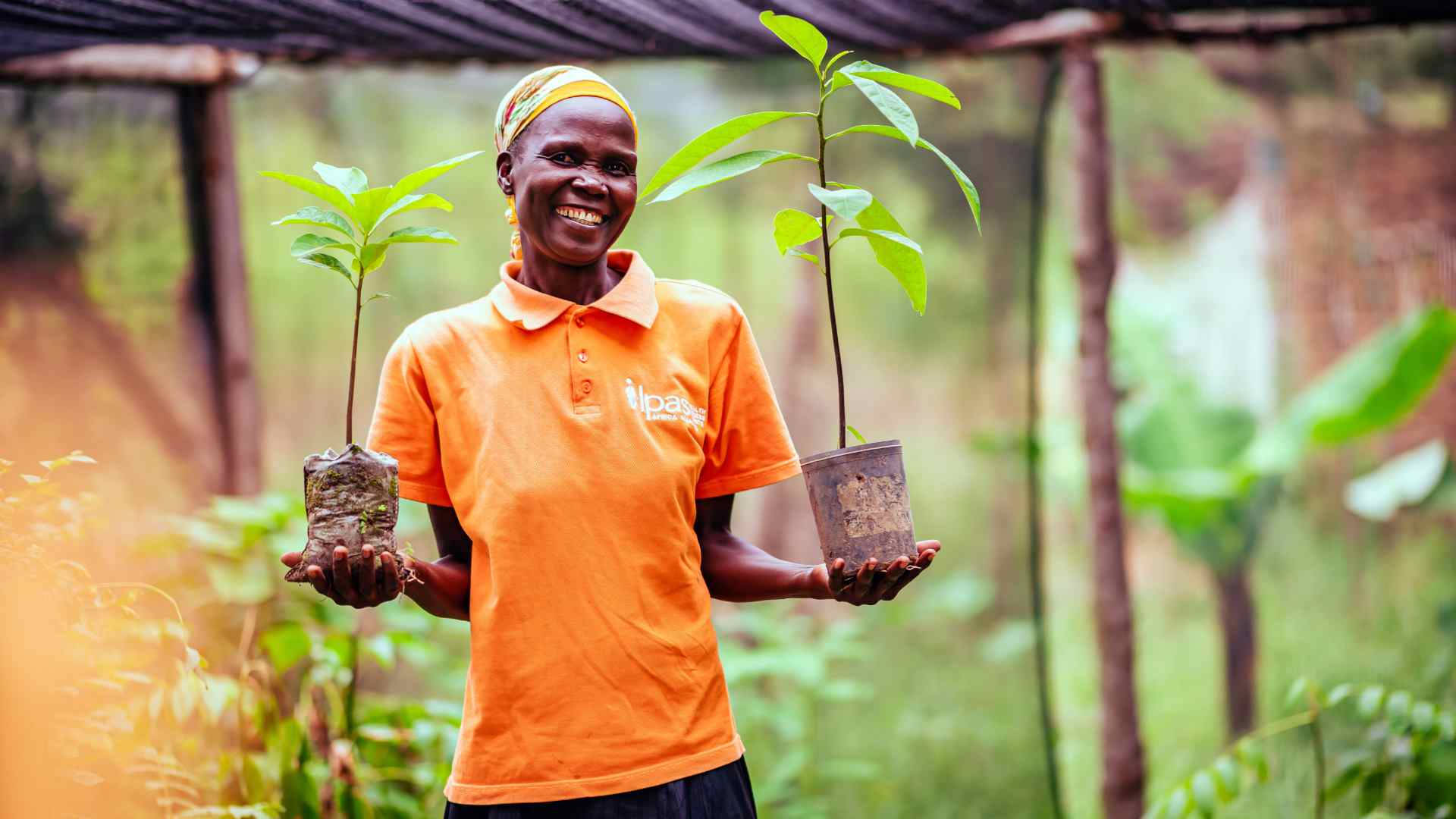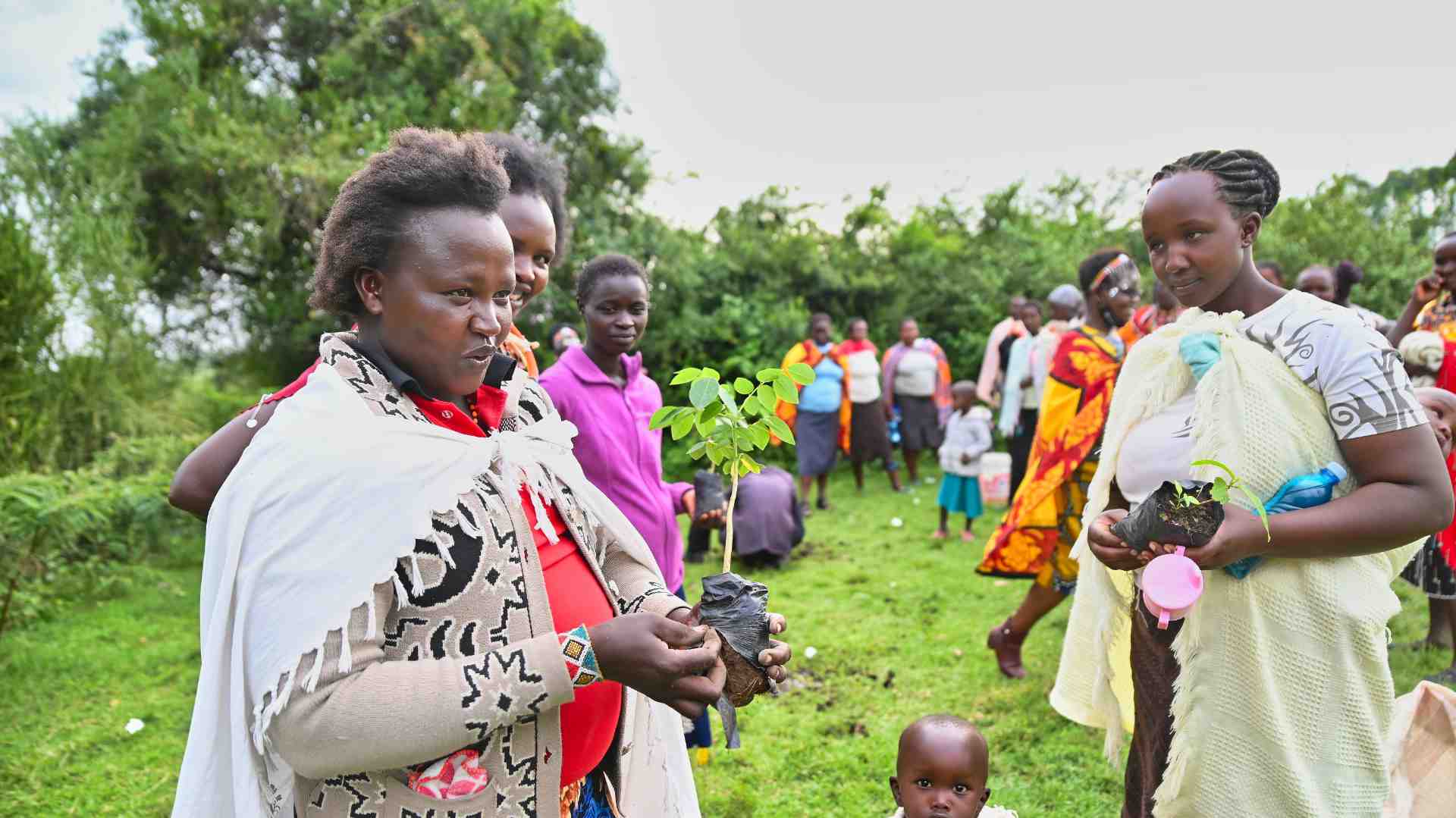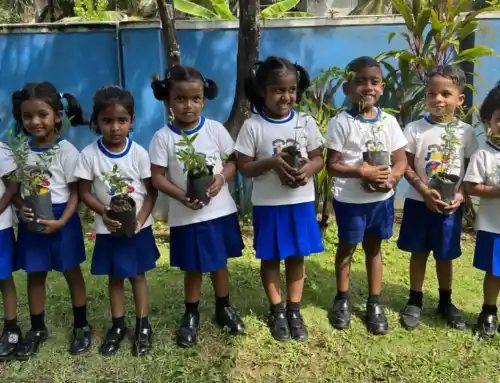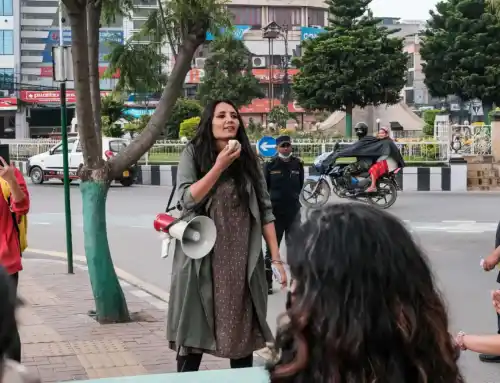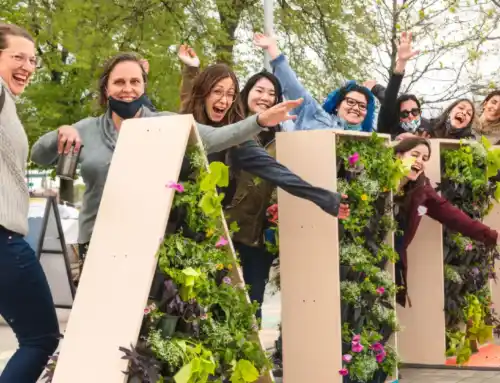STORIES
Rose Wamalwa:
Raising up women climate champions in East Africa
Rose Wamalwa is a community climate advocate, promoting gender friendly climate resilience initiatives in Kenya and across East Africa. She co-founded two women-led organizations – Women in Water and Natural Resources Conservation in Kenya and Women’s Climate Centres International across East Africa. Through the two organizations Rose has mobilized and formed a network of women climate organizers and has established community climate centers. These centers bring men, women, boys, girls, and families together to address climate related challenges and build a sustainable future.
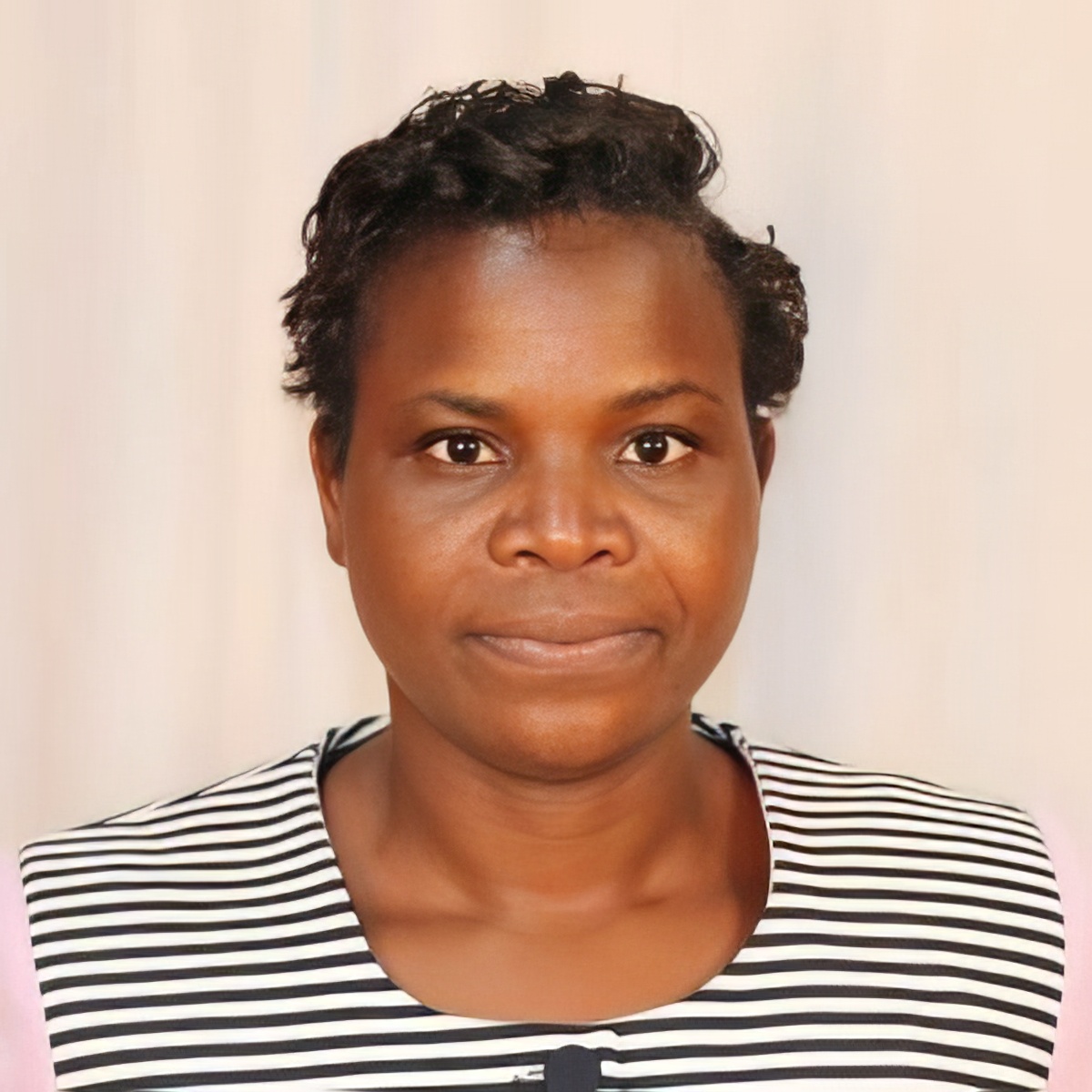
I grew up in Kakamega, in the western part of Kenya. As a school going child, I used to walk five kilometers to fetch water. I would carry the pots of water on my head all the while thinking about how I could change this situation when I grew up. Growing up in a rural setting opened my eyes to the climate change challenges such as drought and food insecurity. I saw the impact this had especially on women and girls. There was no platform for them to speak out on their challenges and seek solutions. The women around me were marginalized and sidelined, and left out in key decision-making platforms
In 2016, Kenya experienced dreadful floods. I received a call from Mama Diana Chesengei from the Maasai community. When I heard about how her two children were almost swept away by the floodwater and that she had lost her cow and goats, I was shaken. Her cry was a wake call for me to act. I was determined to change the system so that the next generation would not have to go through the same cycle.
I co-founded Women in Natural Resource Conservation, an organization that focuses on grassroots women, working with the women that really feel the impact. Why women? And why at the grassroots? Because, our floods, when they come, they never come to the State House and these big palatial places. The floods come to that woman who is living in a small house by the river.
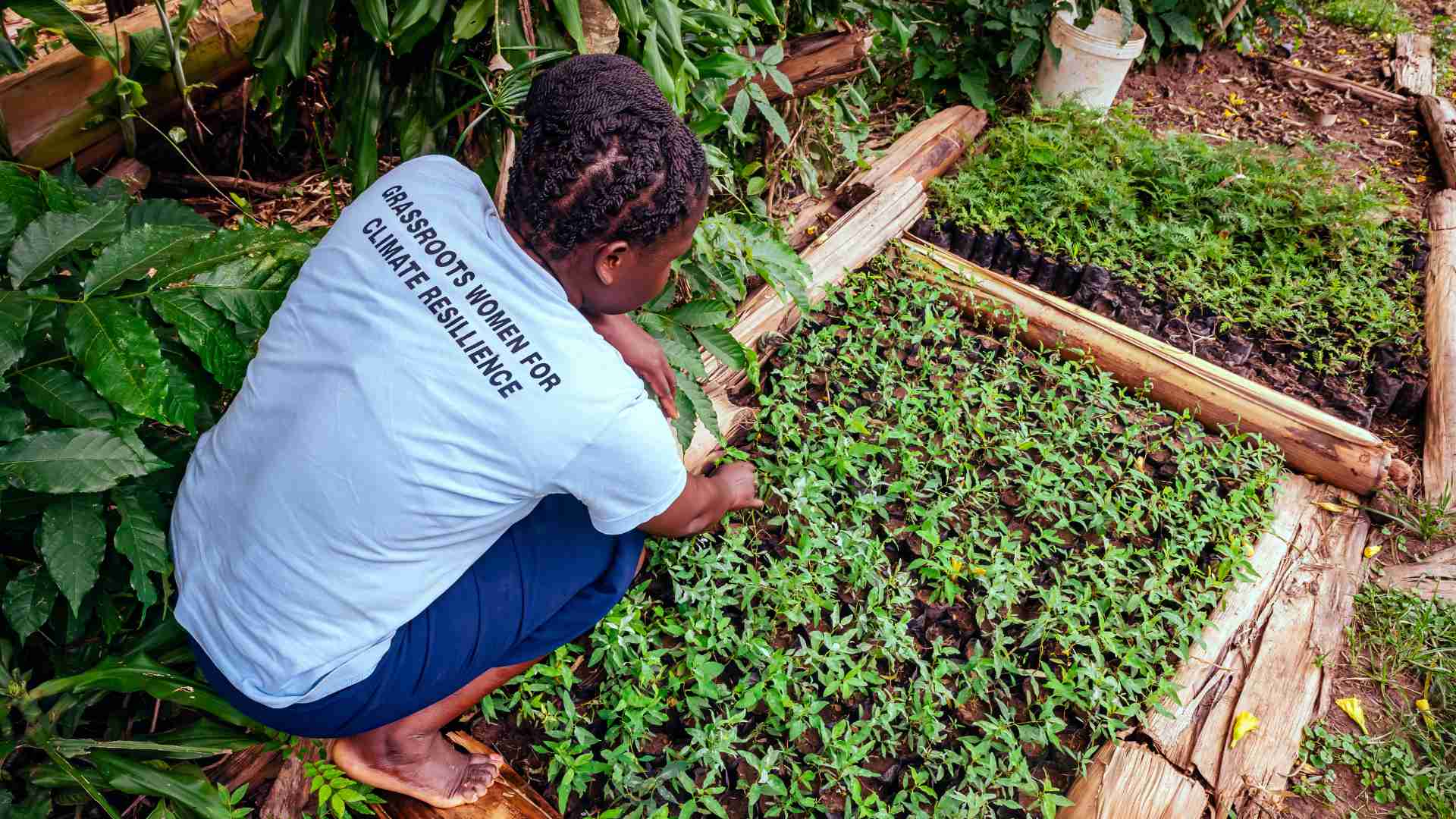
In Africa, we often say that the backbone of a family is a woman. So, when a woman thrives, the children will thrive, and the men will thrive, and the youth will thrive. Yes, while climate change has no gender, it can’t be denied that women are affected more. Focusing on women seemed like the best way to address everyone’s issues and bring the entire community – women, men, and children together.
In 2019, I met women from different countries and in our conversations, it came up that since climate change is a global crisis, why not create another platform where we can incorporate small, women-led organizations in East Africa? And that’s how we set up Women’s Climate Centers.
Our mission is to promote knowledge and capacity development in climate resilience for women across Kenya. We want to raise women climate champions at the community level who address the impact of climate change. We want to adopt climate smart technologies.
We’ve begun a series of community climate resilience training in schools and women groups. We’re planting indigenous trees in Kakamega forest and agroforestry trees in individual farmlands to increase forest restoration and to promote carbon sequestration. We also promote energy saving cookstoves that use only 2 pieces of firewood.
With support from CPF, I have also started 5 community climate hubs for women, youth and children. We have established small demonstration plots for regenerative agriculture and a tree nursery for indigenous communities that has led to 5000 seedlings planted in Kakamega Tropical Rain Forest.
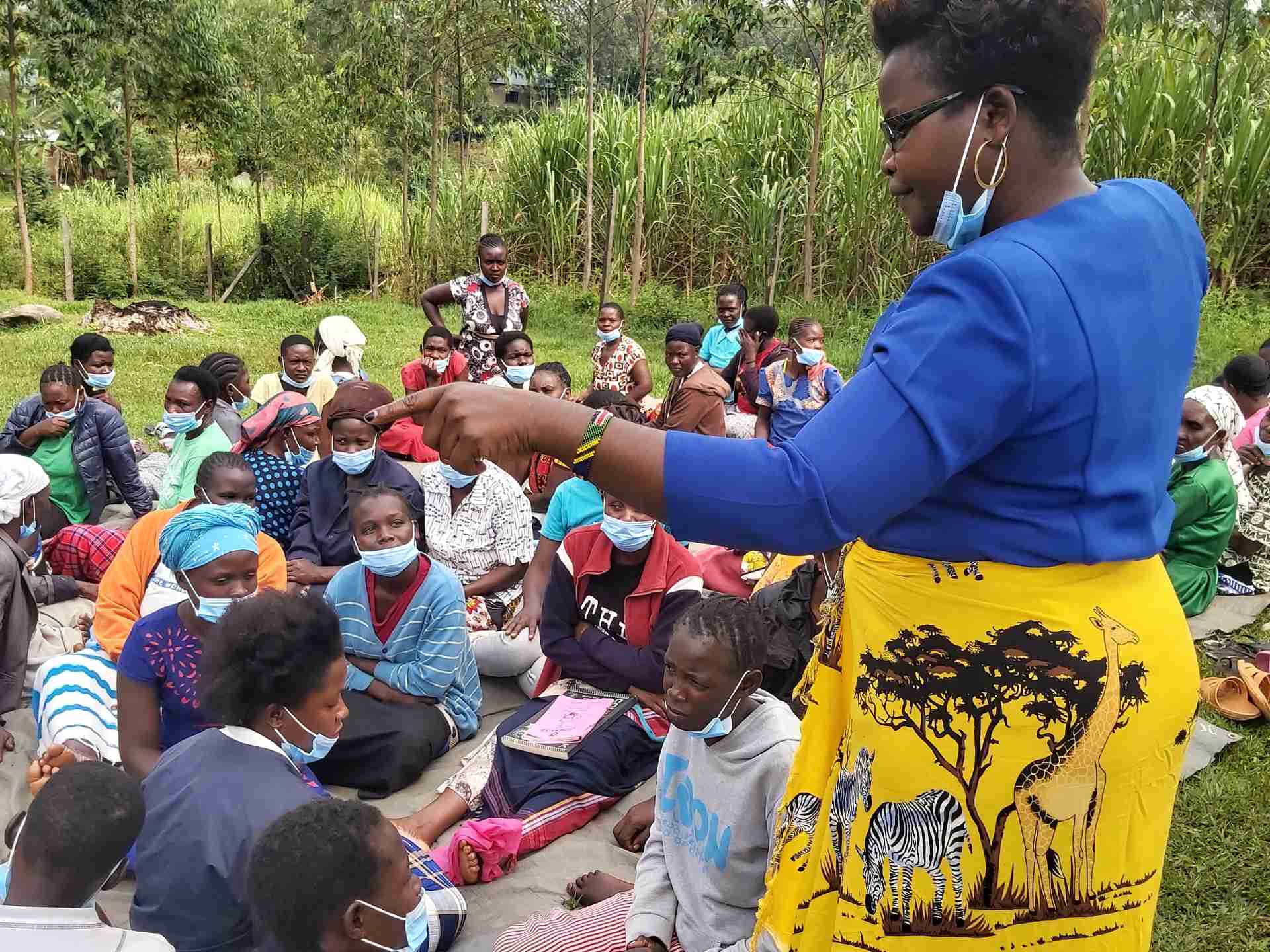
We need to help ourselves as much as possible. We need to create communities that work as one. During times of disaster, we cannot wait for the state to come to our rescue. Maybe that will take days. Can we take that risk?
I believe that each one of us – children, women, men, and the youth have a role to play when it comes to issues of climate change. Wangari Mathaai, an environmentalist and the first African woman to receive the Nobel Peace Prize said that it is important for you to really understand that it’s good to have everyone on board. Teamwork. When you do it alone, you risk missing or losing everything. But if you work together as a team, then there’s the possibility of sustaining. And that is why we find it crucial to bring people together.
There are so many parent groups across the world and that is powerful because climate change is an intergenerational issue and therefore the parent-child synergy is a good approach in addressing it.
I believe that the heart of coping with climate change and conserving nature really lies with the people. We need to protect and share indigenous knowledge. We need different generations learning from one another.
